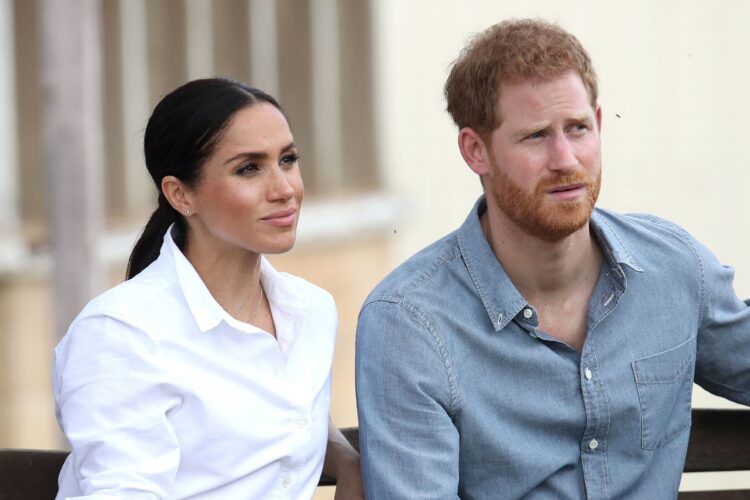By Lucy Caulkett.
Meghan Markle has agreed to pay £67,000 in legal costs after losing the first round of her battle against the Mail on Sunday’s publisher.
A written submission from July 22 reveals the duchess agreement to fully pay the publisher’s costs for the strike-out hearing of £67,888.She will pay the huge costs, after the High Court struck out parts of the Meghan’s claim, including allegations of ‘deliberately stirring up’ issues between her and her father.
The duchess, whom alongside her husband, Prince Harry, parted ways with the royal family, is suing Associated Newspapers Limited (ANL), publisher of the newspaper and MailOnline, over an article published in February 2019 which reproduced parts of a handwritten letter she sent to her father.Her legal representatives also said that daily articles published when the Dutchess was pregnant, most of which were allegedly false, caused her mental health issues.
Her legal team have also applied to the High Court to stop anyone from naming her five female friends who briefed People magazine
Judge Mr Justice Warby, who is expected to rule on the matter in August, has temporarily granted the wishes of Ms Markle, for the names of her friends not to be reported.
The five women are the sources of a People Magazine article in 2019 in legal papers submitted by Meghan to the court earlier this month, but their identities were not made public.
However, Antony White, QC for Associated Newspapers, the publisher of the Mail on Sunday and MailOnline, has challenged the requests. He told the court that the principle of open justice in Britain means the five friends should be named. Mr White also said Meghan was apparently ‘pleased with her friends’ intervention’ in speaking to People magazine, apart from the reference to the letter she wrote to her estranged father.
The first was ‘a longtime friend’ of Meghan, the second was referred to as ‘a former co-star’, the third ‘a friend from LA’, the fourth is described as ‘a onetime colleague’ with the fifth described as ‘a close confidante’.
He said: ‘There is no proper evidential basis (for the application). There is no evidence at all from four of the five friends and the evidence from the fifth (Friend B) has been shown to be unsatisfactory.’
Mr White said: ‘There is no risk of reprisal in this case.’ The barrister added: ‘The information they disclosed to People was information about the claimant, but is not said by her to be private or information that she seeks to protect.’
Misleading
The Mail On Sunday claims that revelations in People and the misleading impression it gave of the letter afforded Thomas Markle the right to publish more of the handwritten note in the newspaper to defend himself after their relationship became hopelessly estranged in the wake of Meghan’s marriage to Harry in May 2018.
Meghan insists that her friends who are all young mothers, have the right to their privacy being protected.
In written submissions, Antony White QC, acting for ANL, said: ‘The friends are important potential witnesses on a key issue.
‘Reporting these matters without referring to names would be a heavy curtailment of the media’s and the defendant’s entitlement to report this case and the public’s right to know about it.
‘No friend’s oral evidence could be fully and properly reported because full reporting might identify her, especially as there has already been media speculation as to their identities.’
Mr White also said the present order sought by the duchess’s lawyers would leave Meghan entitled to disclose the identities to anyone – including the media – who could publish it, while ANL’s titles would remain barred from doing so.
Meghan’s barrister Justin Rushbrooke QC said Meghan’s five friends were entitled to ‘a very high level of super-charged right of confidentiality’ and confidential journalistic sources.
He claimed ‘there is ample evidence before the court’ to support his client’s application to maintain the anonymity of her five friends.
He said: ‘We say at least four of the five sources have no real role at all on the issue raised by the defendant’s defence regarding the interview with People magazine in the US.




